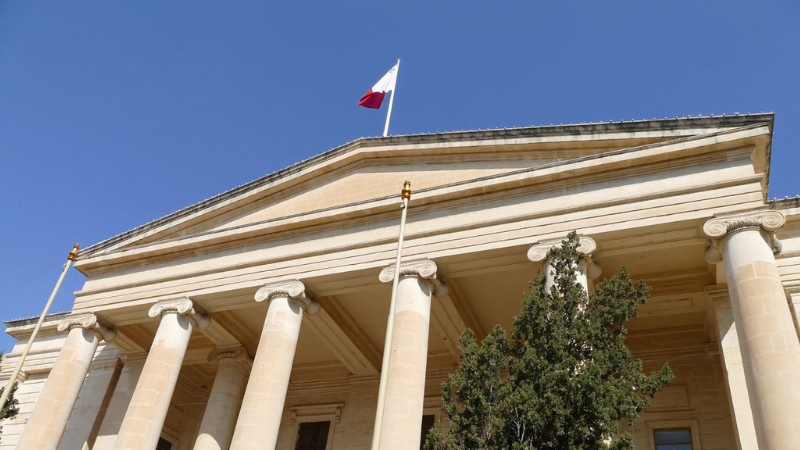The Chamber of Advocates has expressed dismay about a Bill on reform of the legal profession to “address recommendations made by Moneyval” last month, saying it was a diluted version of a more substantive draft agreed between the Chamber and the Minister.
The Chamber’s concern is that in opting for an exercise intended to tick another box on the Moneyval checklist the government will lose an opportunity to pass a law that would raise the standards of ethics and professionalism in the legal profession, discussed for some 15 years.
The prompt for the present Bill was the Council of Europe’s Moneyval report in 2019, which made the point that the regulation of the profession, particularly in “market entry measures” (due diligence prior to service of warrant), is “not adequate” and constitutes “significant money laundering and financial terrorism risk for Malta.”
Moneyval is now set to assess Malta’s reforms on rule of law and decide on whether to subject Malta to enhanced monitoring – more popularly known as ‘greylisting’ – which would be a blow to the financial services industry.
Long before Moneyval, successive presidents of the Chamber have over the past 20 years felt the need for tighter regulation of the legal profession.
Other professions have dedicated laws that regulate professional conduct and standards. Yet lawyers have been regulated by a patchwork of legal provisions scattered over three laws.
Moneyval itself drew this comparison in its report: “On the other hand [in contrast to lawyers], notaries are public officials and are regulated and subject to ongoing supervision by the Notarial Council”.
Although lawyers are subject to a code of ethics, in which breaches are punishable by a fine and possible disbarment, the system of supervision is opaque and ineffective.
Proceedings for breaches are undertaken by the Committee for Advocates and Legal Procurators, which is a subcommittee of the Commission for the Administration of Justice. Proceedings are held in secret and findings are not shared with the complainant.
The fact that the complainant has no way of knowing whether the lawyer would have been found guilty runs counter to principles of natural justice, as well as fair hearing provisions in human rights law. It leaves complainants feeling disillusioned, which in turn saps confidence in the system of supervision and discourages complaints.
People cannot have confidence in a system of accountability that is completely opaque: the public knows nothing of the number of lawyers censured and for what reasons.
Sources also told The Shift that the opacity and low public confidence undermines the point of censure and allows crooked lawyers to take a calculated risk on abuse, including overcharging.
Legal sources maintain that public exposure is a missing and essential deterrent in curbing abuse. The ineffectiveness of proceedings is another. The committee has insufficient resources and the working lawyers who sit on the committee are unable to take time off their work to hold more than two sittings every week.
This has beleaguered proceedings and caused delays, with some cases dragging on for many months beyond time limits set in the Constitution.
The Bill before parliament fails to address any of this. It is mostly a rehash of existent laws, with only two new measures that would marginally strengthen standards.
One of these is an added layer of scrutiny of graduates in the procedures prior to granting a warrant. The other is the addition of a new offence that may lead to disbarment, focusing on repeated, systematic breaches of obligations under money laundering legislation, which is intended to satisfy Moneyval.
While this Bill may tick some of Moneyval’s recommendations, the issues highlighted on the lack of effectiveness of investigatory and censure proceedings are set to be exacerbated by a committee that would be diluted further through an expansion of its membership and mishmash of its functions.
The committee envisaged in the Bill would become part of the scrutiny of law school graduates besides continuing to fulfill its present function of proceedings against errant lawyers.
At present, the committee has five members. Three are appointed by the Chamber of Advocates.
According to the Bill, the new committee would expand to seven members, with three appointed by the State: appointees of the Attorney General and the State Advocate, as well as “a senior official” of the Justice Ministry appointed by the Justice Minister.
The presence of the appointee of the Justice Minister is anomalous – Ministers do not normally put their appointees on investigatory bodies of professional sectors – and it is being perceived as the government’s attempt to gain influence over the committee.
In this way, instead of strengthening self-regulation of the legal profession via the Chamber, which is the professional body representing lawyers, and giving it the resources needed to be effective in its functions, the Bill will end up weakening the Chamber.
This not only runs counter to the principles of self-regulation that guide other oversight bodies of professional sectors. It presents an added danger that an expanded committee would descend into more protracted proceedings and less efficiency.
As the Chamber pointed out in a statement, the Bill is “a half-hearted attempt to deal with Malta’s quest to make it through the Moneyval assessment. There is no genuine desire to regulate the profession in a manner which will enhance the profession in the public interest and in the interest of a stronger and independent profession”.
This is a pattern evident in other legislative reforms conducted last year under pressure from bodies of the Council of Europe and the EU – most or all of these reforms are weakened by loopholes or shortcomings.
It is a pattern that gives the impression that instead of going full throttle towards holistic, meaningful reform that is good for the country, the government is merely doing the least possible to pass the Moneyval test.












